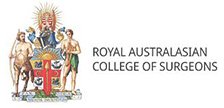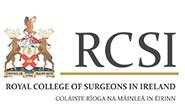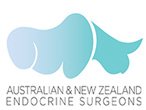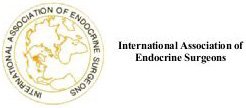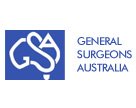Thyroid Cancer
Thyroid cancer is an abnormal growth of the cells of the thyroid gland, Thyroid cancer is more common in women than men. People who are exposed to high levels of radiation to the neck and have a family history of thyroid cancer and goitre (enlargement of thyroid gland) are at a higher risk of developing thyroid cancer.
There are four types of thyroid cancer:
- Papillary thyroid cancer- Cancer that begins in the follicular cells and usually spreads slowly. It is the most common type of thyroid cancer and can be cured especially if early diagnosis is made.
- Follicular thyroid cancer- Cancer that develops in the follicular cells and usually spreads slowly. Like papillary thyroid cancer, it can be cured with early diagnosis.
- Medullary thyroid cancer- Cancer that arises from C cells of the thyroid gland. It produces abnormally high amounts of the hormone, calcitonin. It tends to grow solely and can be treated before spreading to the other parts of the body.
- Anaplastic thyroid cancer- Cancer that starts in the follicular cells of the thyroid and grows and spreads quickly to other parts of the body. It is the least common type but the most aggressive form of thyroid cancer.
As the cancer develops, you may notice a lump or swelling in front of your neck, pain in the neck or throat, difficulty in swallowing or breathing, cough, and changes or hoarseness in your voice. Your doctor will recommend a treatment plan based on the results of diagnostic tests such as blood tests, thyroid biopsy, thyroid scan, laryngoscopy, and ultrasound of the thyroid gland.
- Calcitonin blood test: This test measures the amount of the hormone calcitonin in the blood. This test can help diagnose medullary thyroid cancer as there is a high level of this hormone in the blood in this disease.
- Laryngoscopy: It is an examination of the larynx (voice box) performed by holding a small mirror at the back of your palate or by placing a laryngoscope (a thin tube with a light and a lens on the end) in the mouth.
- Thyroid scan: A thyroid scan is a nuclear medicine test that allows your doctor to check how well the thyroid gland is functioning. It uses a radioactive tracer and a scanner to measure how much tracer the thyroid gland absorbs from the blood.
- Ultrasound of the thyroid: It uses sound waves to create images of your body. This test uses a lubricating gel and a transducer rubbed over the neck to look at the size and texture of the thyroid gland. This test can tell whether a nodule is a fluid-filled cyst, or a mass of solid tissue.
Depending upon the type of thyroid cancer present, your doctor may choose one or more of the following thyroid cancer treatment options:
- Radiation therapy: This method uses high beam of radiations or to destroy the cancer cells. The patient may also take a dose of radioactive iodine to kill thyroid cells.
- Surgery: Generally, surgery is the most common treatment of thyroid cancer. Total thyroidectomy is a surgical procedure to remove all the thyroid gland. Subtotal or partial thyroidectomy is a surgery to remove part of the thyroid gland. Your doctor may also remove the lymph nodes if the cancer has spread to the lymph nodes.
- Chemotherapy: It is a type of cancer treatment that uses drugs to destroy cancer cells. Chemotherapy may be used to cure the cancer, slow its growth and spread, and lessen the pain. Chemotherapy is used in patients with cancer that cannot be treated with surgery or is unresponsive to radioactive iodine, as well as for patients with cancer that has spread to other parts of body.

